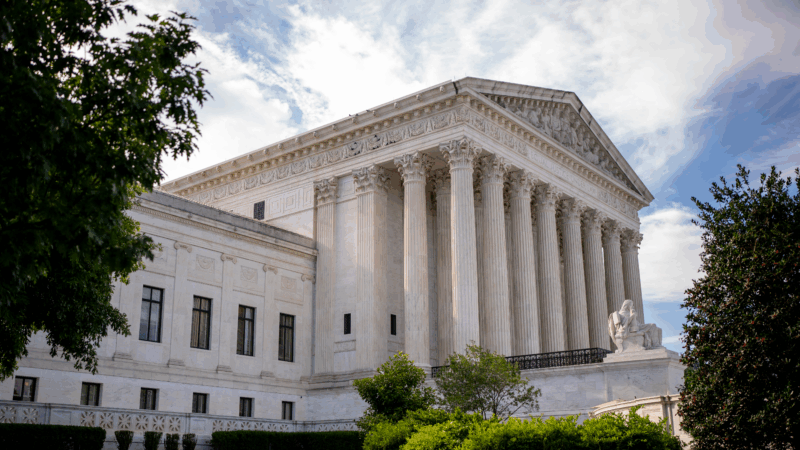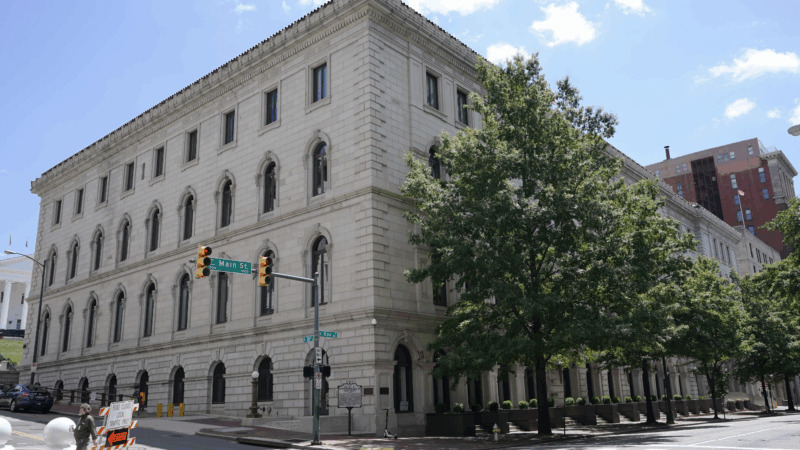Supreme Court says family can sue over wrong-house raid
A unanimous Supreme Court said a family whose house was wrongly raided by law enforcement can sue.
At issue is what law enforcement refers to as “wrong-house raids.” Local, state, or, as in the case before the court, federal officers smash into a private home to find a suspect, but it’s the wrong house. That’s what happened to Trina Martin, her 7-year-old son Gabe, and Trina’s partner, Toi Cliatt, in their Atlanta home in 2017 when they their house was wrongly raided by FBI and SWAT agents who were serving an arrest warrant for a neighbor accused of gang activity.
In 2019 the family sued the FBI and individual agents for the wrong-house raid. It’s never easy to bring such cases in state court, and it is even harder in federal court. That’s because the federal government is generally immune from being sued, except in certain circumstances set out by Congress. The question for the Supreme Court was whether this wrong-house raid falls within those circumstances.
The U.S. government typically benefits from “sovereign immunity,” meaning it can’t be sued. But Congress passed the Federal Tort Claims Act in 1946 making an exception to allow lawsuits against the federal government for harms caused by its employees. The statute was amended in 1974, partly in response to two high-profile wrong-house FBI raids.
The question for the Supreme Court is whether the statute, as amended, now allows victims to sue, period. Or can they sue only if the perpetrators of the raid were following government orders, here orders from the FBI.
The government’s argument is that the FBI officers were told to go to the right home, not the home they raided, and that the FBI should not be liable for every wrong judgment call a federal officer makes in these stressful situations. In the government’s view, the officers were tasked with executing a raid on the house of a “dangerous individual,” and making the government pay up for the officers’ mistake would undermine federal law enforcement’s ability to do its job in the future.
Martin and Cliatt counter that it shouldn’t matter whether the officers made this mistake, even though they were given the right address, because Congress intended for the government to be held accountable in these exact kinds of situations when it amended the statute in 1974.
The high court’s 6-3 conservative majority has had plenty of chances to weigh in against these wrong-house raids. But for decades, the court has rejected several claims against law enforcement officers, making it more difficult to bring cases like this one.
On Thursday, it took a different course. Justice Neil Gorsuch wrote the opinion for the unanimous court.
Annual governors’ gathering with White House unraveling after Trump excludes Democrats
An annual meeting of the nation's governors that has long served as a rare bipartisan gathering is unraveling after President Donald Trump excluded Democratic governors from White House events.
Federal judge acknowledges ‘abusive workplace’ in court order
The order did not identify the judge in question but two sources familiar with the process told NPR it is U.S. District Judge Lydia Kay Griggsby, a Biden appointee.
Top 5 takeaways from the House immigration oversight hearing
The hearing underscored how deeply divided Republicans and Democrats remain on top-level changes to immigration enforcement in the wake of the shootings of two U.S. citizens.
Snowboarder Chloe Kim is chasing an Olympic gold three-peat with a torn labrum
At 25, Chloe Kim could become the first halfpipe snowboarder to win three consecutive Olympic golds.
Pakistan-Afghanistan border closures paralyze trade along a key route
Trucks have been stuck at the closed border since October. Both countries are facing economic losses with no end in sight. The Taliban also banned all Pakistani pharmaceutical imports to Afghanistan.
Malinowski concedes to Mejia in Democratic House special primary in New Jersey
With the race still too close to call, former congressman Tom Malinowski conceded to challenger Analilia Mejia in a Democratic primary to replace the seat vacated by New Jersey Gov. Mikie Sherrill.





